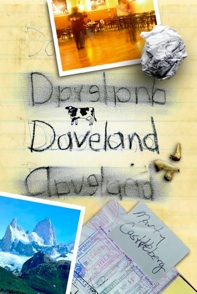
Cooper Renner‘s fiction has appeared in several magazines, most recently including The Brooklyner, JMWW, Dark Sky and Blip, as well as in other venues mentioned below and in the ghost story anthology Shadows and Silence (2000) and the illustrated chapbook Dr Polidori’s Sketchbook (2010). His poetry, published under the name Cooper Esteban, is collected in Mosefolket (2007) and has been published in Unsaid, Keyhole and, perhaps most notably, in The Quarterly with Gordon Lish. His drawings and photographs have been used by Bannock Street Books, Thunderclap Press and Gold Wake Press, and have appeared in such magazines as Lamination Colony, Smokelong and Sleek. He is currently “snow birding” on Galveston Island and working hesitantly on a new Maltese novel, perhaps to be called The Gothic Congress.
Q (Meg Pokrass): Do you have mentors, do you mentor?
Because I didn’t go through the MFA (or any comparable) system, most of my learning about writing has come through reading (mostly older) writers and from contacts with editors (generally writers themselves) who published my poems, notably Gordon Lish and Deron Bauman. I also had long and encouraging correspondences with Donald Hall and Guy Davenport, though we didn’t necessarily discuss my work all that much. We wrote about books, writers, all sorts of things.
I would hesitate to say that I am myself a mentor, though I do often suggest edits to work that runs in elimae. I’m not really in a position to do much mentoring as almost all of my writer contacts have occurred via the Internet rather than in any kind of face-to-face contact, working together over a manuscript.
What are your favorite ways to jumpstart creativity?
I’m not sure that this is something I am at all good at, especially when it comes to poetry. A long time ago, more than 20 years, I wrote a lot of poems (or drafts might be a better word). Ideas seemed to come to me, often sparked by something I was reading or even by a stray image or phrase, something that opened up a voice to me. In the last decade or two, ideas for poems have come to me very rarely. I am also not terribly productive of short fiction, though I have found it greatly inspiring to have the prompt words you’ve been providing all year at Facebook. At root, I have almost nothing whatever to say, no content, as it were–at least not anything of interest to anyone but me–and so my writing has to come from outside, in the case of my poems usually from a pre-existing character, from mythology, religion or history. My poems are mostly monologues, very short expositions from other characters. Most of my fiction, written from time to time over almost 40 years, has been in novel form, a form which in some ways short-circuits the need for inspiration since one theme can run for two hundred pages or more. Almost all of the fiction I have written since my retirement from the public schools five years ago has dealt in some way with Malta, which I first visited several months after retirement. My twisted little literato mind keyed off the fact that Coleridge lived and worked in Malta for several months not long after the British took over 2 centuries ago, and that has wormed its way into a number of works.
What is it like living sparely and simply, something you have mentioned to me, having a simple life as a creative person in all the ways that you do…
I wish I could live even more simply. I guess it all started twenty years ago when I started getting geographically restless. Moving lots of things around gets really boring (not to mention heavy and time-consuming), so I started divesting. About five years later I bought and moved into a travel trailer for the first time and started living in RV parks. One simply can’t pile up a lot of stuff if one has only 200 square feet to live in. And then several years after that I switched to a trailer with less than 100 square feet, so… Having a Nook helps in the book area, and using an iPod helps musically. I’ve long since gotten to the point that things feel like a terrible burden to me, something to care for and worry about. If a university somewhere would give me an office to work out of, then I would almost certainly let books start piling up again, even against my own will, in that office, and still keep my living space light. I tend toward the thought, though I haven’t quite attained the reality of it, that I don’t want to own anything that anybody would want to steal from me.
You are one of internet writing’s most beloved editors. PLEASE TALK ABOUT YOUR EDITING PROCESS.
You are very kind to say that, though surely you exaggerate. Even so, I thank you. I do hope that I am useful in some way or another. It is important, I think, to remind writers that their work is theirs, and they are the ones who must be “happy” with what is published in their names. The edits I suggest may not please a writer, and usually in that case I will simply tell him/her to keep it as he/she wishes and send it out to another magazine. When a writer has agreed to an edit, but leaves me with the feeling of some hesitation or regret, I like to remind him/her that the work in its original form can always be restored when the book comes out. What appears in elimae is not necessarily the final form of a work.
As for my process (if what I do deserves the word), I think I learned it (or they might say mislearned?) from Lish and Bauman. I go for the sentences and phrases which feel most alive and vital and “new”, and ask the writer to remove the rest, even if it changes the “meaning” of the work. Meaning doesn’t matter a great deal to me as an editor: a feel for language and imagery is what attracts me. The strongest writing is what I want, not a pre-ordained message which the writer is attempting to embody. I think writers generally need to divorce their writings from their personae.
This is not, by the way, something I achieve myself in regard to my own fiction, except for the micro fictions, which probably loosely correspond in intent to my editing style or the way I approach my poems. My long fiction is not elimae-ish. It is in fact content-driven, not avant-garde at all but narrative. I hope that it’s both entertaining and written with some degree of literary skill, but I suppose readers will decide that. My longer fiction is, perhaps it’s fair to say, nearer in intent to Arthur Conan Doyle’s than Raymond Carver’s.
What intrigues you in your world right now the most… creatively and otherwise. and congratulations on your move…
Over the past couple of years I’ve been reading a lot of work in translation from the first part of the 20th century and the very late 19th: Hans Fallada, Robert Musil, Thomas Mann, Joseph Roth, Irene Nemirovsky, Veza Canetti, Wolfgang Koeppen, Hermann Hesse (in Hesse’s case, often reading for the second or third time), as well as, in a few cases, newer works (sometimes mysteries) set in that world. The Austro-Hungarian Empire has seemed especially intriguing. Right at the moment I’m reading War & War by Laszlo Krasznahorkai, a book which is not exactly my cup of tea, though I’m enjoying it more than I feared when I first started. Krasznahorkai is, I think, a bit younger than I am. Another contemporary, though somewhat older, writer whom I enjoy is the Israeli Yoel Hoffmann. The writer and translator Tsipi Keller has recommended a number of writers I might not otherwise have stumbled across, because she has a more European (and more classically Modernist) tilt to her reading. Koeppen is a writer I came to because of Tsipi, and he is amazing. His post-war “trilogy” (Pigeons on the Grass, The Hothouse, Death in Rome) ought to be at every writer’s fingertips. Those books are astonishingly marvelous, a kind of mid-century Modernism in much the same way that Alan Garner’s novels (Strandloper, Thursbitch, Red Shift) and Davenport’s stories are late-century Modernism.
Of course I love to draw, and a few of your readers may have seen a few of my works here or there. My work is, I would say, at best “naive” or “primitive”, but perhaps that doesn’t prevent at least the occasional work from being at least a bit interesting. For the past year almost everything I have drawn has been digital, working with various programs on an iPad.
As for my move–I am back in a travel trailer for the first time since 2006 and for the first time without having my location dictated by a job. At the moment, I am on Galveston Island, hoping its winter will be mild enough to keep me from feeling quite as despondent as winter usually makes me.
What is new? What is next for you? What are you working on?
Kathryn Rantala at Ravenna Press is planning to publish two “Ravenna Triples” next year, books of about 96 pages which will include 3 authors each: a collection of three chapbooks, as it were. If all goes as planned, a collection of my drawings which incorporate texts will be published in a Triple along with the fiction of Brandon Hobson and the poetry of Alek Lindus of Greece. I’m excited about it. Ravenna is also going to do a print edition of my novella Disbelief, which is written partly in verse and partly in prose and claims to contain the substantially complete fragments of a lost narrative poem by Coleridge, along with memoiristic material and “scholarly” commentary. New York Tyrant andThe Anemone Sidecar have published excerpts from it, but this will be the complete work, along with a handful of illustrations. I’ve also had a story called “Coyotes” accepted for an upcoming anthology of Texas writing to be called, I think, New Border or New Border Anthology. And I’ve published 3 ebook novels this year: Dr Jesus and Mr Dead, A Death by the Sea, and A Spurious Death in a Foreign Country.
The Fictionaut Five is our ongoing series of interviews with Fictionaut authors. Every Wednesday, Meg Pokrass asks a writer five (or more) questions. Meg is the editor-at-large for BLIP Magazine, and her stories and poems have been published widely. Her first full collection of flash fiction, “Damn Sure Right” is now out from Press 53. She blogs athttp://megpokrass.com.
 First things first: we’d like to wish all of you a happy, healthy, and creative 2012. We’re excited to announce Editor’s Eye, a new blog series that aims to highlight noteworthy work that might have slipped through the cracks of Fictionaut’s
First things first: we’d like to wish all of you a happy, healthy, and creative 2012. We’re excited to announce Editor’s Eye, a new blog series that aims to highlight noteworthy work that might have slipped through the cracks of Fictionaut’s 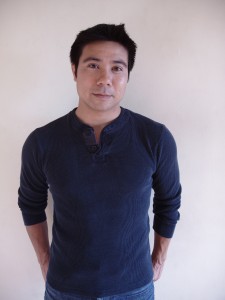 Davin Malasarn works as a Senior Writer at UCLA and recently published his first collection of shorts and flash fiction called The Wild Grass and Other Stories. He was a 2008 Emerging Voices Fellow with PEN Center USA. His works have been published in the Los Angeles Review, Opium Magazine, Rosebud, SmokeLong Quarterly, and other places. He is currently searching shelters for a small mutt that he can take home and call “Fred.”
Davin Malasarn works as a Senior Writer at UCLA and recently published his first collection of shorts and flash fiction called The Wild Grass and Other Stories. He was a 2008 Emerging Voices Fellow with PEN Center USA. His works have been published in the Los Angeles Review, Opium Magazine, Rosebud, SmokeLong Quarterly, and other places. He is currently searching shelters for a small mutt that he can take home and call “Fred.”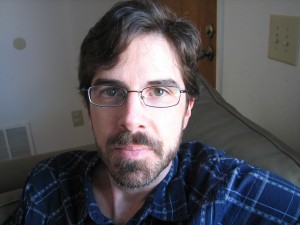
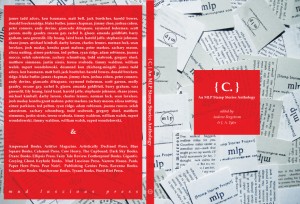 Greetings Fictionaut Community. This month’s reading includes two stamp stories by
Greetings Fictionaut Community. This month’s reading includes two stamp stories by 
 Susan Tepper: Women and their hair. I’ve started believing it must be in our DNA to have this hair obsession. Kari, your story “
Susan Tepper: Women and their hair. I’ve started believing it must be in our DNA to have this hair obsession. Kari, your story “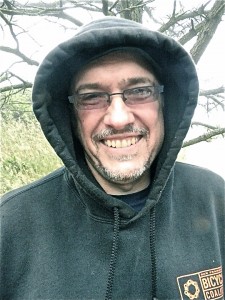 Marty Castleberg
Marty Castleberg